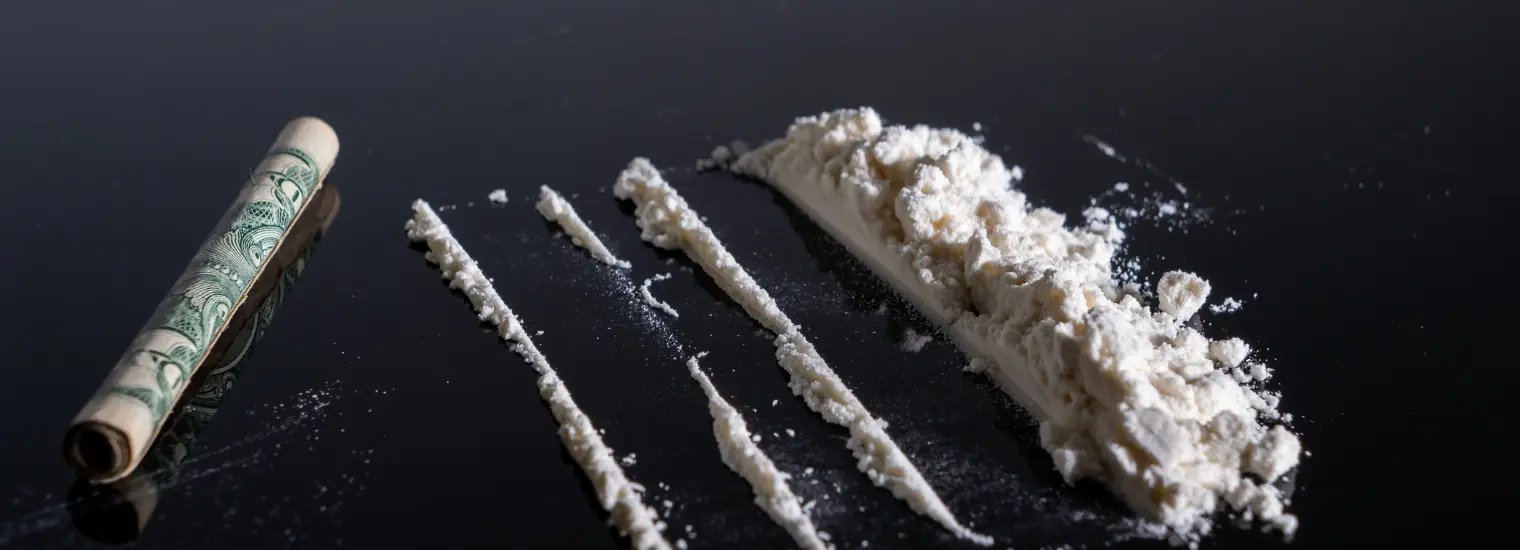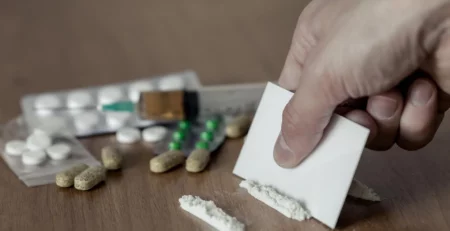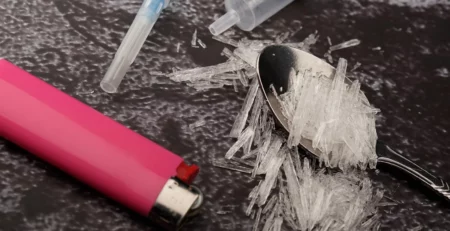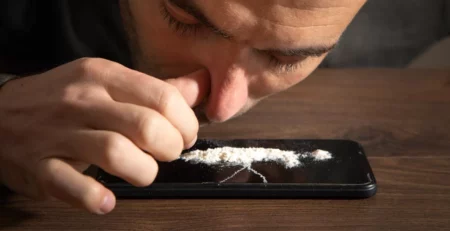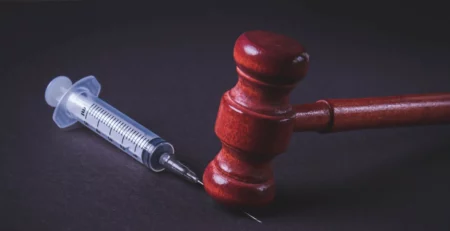How to Comedown from Cocaine
Get Insights on the Cocaine Crash and Use it to Get Help
For those with a love of cocaine, the coming down can be brutal. The final product of cocaine use, otherwise known as the cocaine comedown or cocaine withdrawal, can be overwhelming, triggering significant anxiety and paranoia.
Exhaustion, irritability, anxiousness, and even deep depression are all telltale signs of the cocaine comedown. Luckily, with the right strategies and therapeutic guidance from Icarus Behavioral Health, managing these symptoms and knowing how to comedown from cocaine is simple with the right resources and support pillars.
Our resource delivers practical tips to manage the physical and emotional challenges of dealing with cocaine withdrawal, thanks to the staff at Icarus Behavioral Health Nevada. We are always here as well for a full range of cocaine treatment options.
What Happens During the Cocaine Comedown?

Several physical and mental withdrawal symptoms transpire during the cocaine comedown, as well as the crack comedown.
The cocaine comedown will often trigger cocaine withdrawal and other psychological symptoms that cause sleep disturbances and other challenges. Crashing after a long period of cocaine use can potentially lead to withdrawal symptoms and additional challenges to your physical and mental health.
Regardless of whether it was a multiple-day bender or a single day of cocaine use, some of the most common signs of a cocaine crash include:
Physical Symptoms
- Extreme fatigue
- Rapid heartbeat
- Intense appetite
- Increased blood pressure
- Sweating
- Headache
- And others
On the other hand, an equal amount of mental comedown symptoms exist after cocaine use:
Get Effective Cocaine Detox and Rehab Options at Icarus
Mental Symptoms of Cocaine Comedown
- Paranoia
- Anxiety
- Panic
- Restlessness
- Difficulty sleeping
- Racing thoughts
- Depression
- Lack of motivation
The Duration of the Crash and Influencing Factors

So, what’s the difference between cocaine comedown and full-blown cocaine withdrawal? Several contrasts separate the two.
A Cocaine Comedown
- It can take place after just a short period of cocaine use, even if only for a few hours.
- Individuals don’t necessarily have a cocaine addiction to experience cocaine comedown symptoms.
- Cocaine comedown symptoms are substantially shorter-acting than cocaine withdrawal symptoms.
Cocaine Withdrawal
- Cocaine withdrawal generally takes place after extended periods of cocaine addiction.
- It’s a byproduct of drug abuse and not just simple drug use or overuse.
- Withdrawal from cocaine is often remedied with cocaine addiction treatment, most often during medically assisted detox.
- Cocaine withdrawal often leads to relapses back into drug addiction as users seek relief from the discomfort caused by extended symptoms.
- Withdrawal from cocaine can often lead to post-acute withdrawal symptoms–or the temporary return of withdrawal symptoms for extremely short periods, even months after users have entered recovery.
A Selection of Tips for Overcoming the Cocaine Comedown
As uncomfortable as the crash effects after cocaine use might be, there are several tips you can employ to provide relief for these short-term symptoms.
Some of the most effective ways of combatting a crash from and detoxing from cocaine include:
- Drink plenty of water.
- If you have trouble sleeping, try lying in a completely dark room
- Over-the-counter sleep aids like Tylenol PM, Benadryl, or other products containing diphenhydramine can provide significant relief from feelings of anxiety.
- Remaining physically active or attempting to “sweat” the drug out of you can have positive results.
- A hot or cold shower can have positive results, helping stabilize your body temperature and heart rate.
- Drink plenty of fluids, ensuring you remain hydrated and replenish any lost nutrients and electrolytes.
- Get plenty of natural rest and sleep. Use items like melatonin to help promote restful sleep.
- Manage your anxiety and irritability levels. Use techniques like deep breathing and grounding exercises.
- Avoid subsequent cocaine abuse at all costs! This further complicates your situation, leading to more extended periods of crashing.
When the Crash is More Than a Comedown

We briefly touched on the differences between cocaine crashes and cocaine withdrawal. This section focuses on how to tell the difference and identify when a crash is more than intense comedown symptoms and has turned into a full dependency.
Uncontrollable Cravings
When cravings become uncontrollable, and you begin to feel that you need cocaine to function, you could be crossing over into the dangerous world of dependence.
“I Can Quit Anytime”
If you begin vocalizing to others that you can quit whenever you’d like and that you don’t have a problem—but never follow through with quitting, this is a huge warning sign that addiction treatment is needed.
Emotional Usage
If you begin using cocaine to cope with difficult emotions or feelings or to mask negative thoughts, this is a telltale sign of addiction.
Many users are unaware of the fact that they’re using a substance to cover up the underlying side effects of a more serious mental health disorder.
Get Accredited Treatment Programs at Icarus – Call Now!
Connecting Cocaine Withdrawal and Depressive Disorder
Even though full-blown substance use disorders are more closely related to mental health challenges, this doesn’t mean that symptoms like depression don’t play a pivotal role in the cocaine crash process.
The impact of a substantial dopamine loss is never truly appreciated until your body no longer produces this element. Dopamine depletion can make it all but impossible to experience feelings of joy and creativity and carry a cheerful disposition. Many describe it as living in a “gray” or “black and white” world.
The desire to avoid these negative feelings often drives users to continue to engage in sporadic cocaine use. However, with each binge session, the risk of developing full-blown addiction increases more and more.
Seeking Professional Help If You’re Struggling

If you or someone you love is suffering from the early stages of cocaine abuse, or addiction, or is more frequently suffering from cocaine hangovers, you must help them secure the help they need.
When intervention takes place early enough, any individual can avoid some of the most detrimental side effects and long-term implications of extended periods of addiction. By reaching out to Icarus Behavioral Health, you’ll have full access to the most effective elements of our treatment facility, including:
- Constant access to our compassionate, certified staff with disciplines in many forms of substance abuse therapy.
- Group recovery meetings with peers, family members, or counselor-led sessions.
- A plethora of one-on-one meeting options.
- Access to multiple care levels, depending on the severity of your addiction
- Aftercare services are available, including recommendations for meetings, primary care counselors, and sober activities to enjoy with like-minded individuals.
- Holistic forms of therapy help provide healing for the individual as a whole. This consists of treatment for the mind, soul, and the body.
Up To 100% of Rehab Costs Covered By Insurance – Call Now!
Get Support for Cocaine at Icarus in Nevada
No form of abuse or addiction starts as a full-blown case of dependency. Most begin seemingly innocent enough, with some “partying” here and there.
But at what point does it stop becoming a party and turn into a necessary part of your daily routine? Advancing to this point can be frightening and seem like a dead-end road.
However, our team at Icarus Behavioral Health Nevada has helped clients just like you find light at the end of the tunnel.
If you or someone you love is contending with cocaine abuse or addiction or simply would like support to quit, please reach out to a member of our admissions team today.
All calls are confidential, so please seize the momentum and call now.

